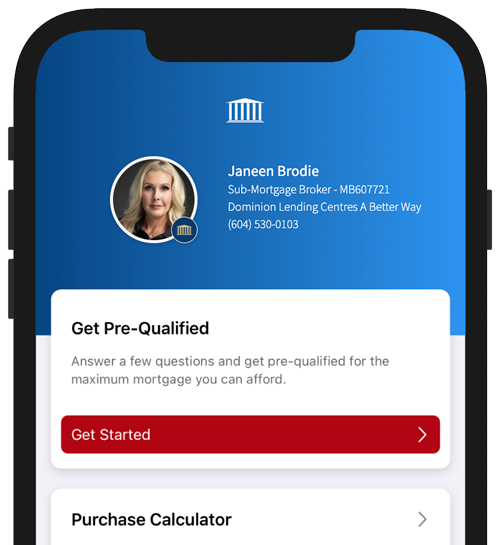
Your Credit Score
Your credit score is a key factor in determining your financial health and affects your ability to borrow money, rent property, and even secure certain jobs. It’s essential to understand how it works, how it’s calculated, and what you can do to improve or maintain a healthy score.
What is a Credit Score?
A credit score is a numerical representation of your creditworthiness, which lenders use to assess the risk of lending you money or offering you credit.
In Canada, credit scores range from 300 to 900. The higher your score, the better your credit rating, which means you’re seen as less risky to lenders.
Credit Reporting Agencies
There are two major credit bureaus in Canada:


Each bureau calculates your credit score slightly differently, but the general principles remain the same.


How to Check Your Credit Score
Checking your score regularly is a good habit to ensure there are no errors and to track your credit health. You can check your credit score for free in Canada through various services, including:
Equifax
(once annually for free)
TransUnion
(once annually for free)
Credit Karma
(ongoing free access, but note they use TransUnion data)
Borrowell
(free, using Equifax data)
Factors That Affect Your Credit Score
Checking your score regularly is a good habit to ensure there are no errors and to track your credit health.There are five main factors that influence your credit score in Canada:
Payment History (35%)
Your payment history is the most significant factor. Lenders want to see that you consistently pay your bills on time.
Late or missed payments on credit cards, loans, or other debt can negatively affect your score.
Tip: Always make at least the minimum payment on your bills by the due date to maintain a positive payment history.
Credit Utilization (30%)
Credit utilization is the amount of credit you’re using compared to your available credit. It’s recommended to keep your credit usage below 30% of your credit limit.
For example, if your credit card limit is $10,000, try to keep your balance below $3,000 to avoid hurting your score.
Tip: Pay down balances regularly to maintain a low credit utilization ratio.
Length of Credit History (15%)
The longer you’ve had credit accounts open, the better it is for your score. This factor takes into account how long your accounts have been active, as well as the average age of all your credit accounts.
Tip: Avoid closing old credit accounts, even if you don’t use them often, as it can shorten your credit history.
New Credit (10%)
Applying for too many new credit accounts in a short period can hurt your score, as it signals that you may be taking on too much debt.
Each time you apply for credit, a hard inquiry is made on your credit report, which can slightly lower your score.
Tip: Limit the number of credit applications you make and avoid opening new accounts unless necessary.
Credit Mix (10%)
A diverse mix of credit types (e.g., credit cards, personal loans, a mortgage) shows lenders you can handle various forms of debt responsibly.
Tip: If you only have credit cards, consider taking on other forms of credit, like a personal loan or car loan, if appropriate.
|
Credit Score Ranges
|
|||||||||
|---|---|---|---|---|---|---|---|---|---|
|
Excellent (800-900)
|
You’ll have little trouble getting loans, mortgages, and credit cards at the best interest rates.
|
||||||||
|
Very Good (720-799)
|
You’re still considered low-risk, and you'll qualify for most credit products with favourable terms.
|
||||||||
|
Good (650-719)
|
You’re a reasonable credit risk, but you may not qualify for the lowest rates on loans.
|
||||||||
|
Fair (600-649)
|
You may have difficulty getting approved for loans or credit cards, and you’ll likely face higher interest rates.
|
||||||||
|
Poor (300-599)
|
You’ll likely have trouble getting approved for most forms of credit, and if you do, the interest rates will be high.
|
||||||||
How to Improve Your Credit Score
If your credit score needs improvement, here are steps to take:
- Pay Bills on Time: Always make sure to pay at least the minimum payment on your credit accounts by the due date.
- Lower Your Credit Utilization: Aim to use less than 30% of your available credit limit on credit cards.
- Avoid Applying for Too Much Credit: Only apply for credit when necessary, as multiple credit inquiries can lower your score.
- Correct Credit Report Errors: Review your credit report regularly and dispute any inaccuracies that could negatively affect your score.
- Keep Old Credit Accounts Open: If possible, don’t close older accounts, as a long credit history can positively impact your score.
- Diversify Your Credit: Having a mix of credit types, such as credit cards, personal loans, or mortgages, can improve your credit profile over time.
How Long Does Negative Information Stay on Your Credit Report?
- Late payments: Stay on your credit report for 6 years.
- Bankruptcy: Typically remains on your report for 7 years after discharge (longer for second bankruptcies).
- Hard inquiries: Remain on your report for 3 years but only impact your score for 12 months.
- Closed accounts in good standing: Positive accounts can remain on your report for up to 10 years.
Maintaining a good credit score is essential for securing loans, credit cards, and even housing or jobs. It’s important to manage your credit responsibly by making timely payments, keeping your credit utilization low, and regularly monitoring your credit report for any inaccuracies. By understanding the factors that impact your credit score and taking proactive steps, you can maintain or improve your financial standing.






